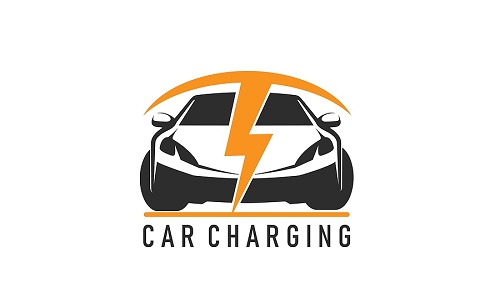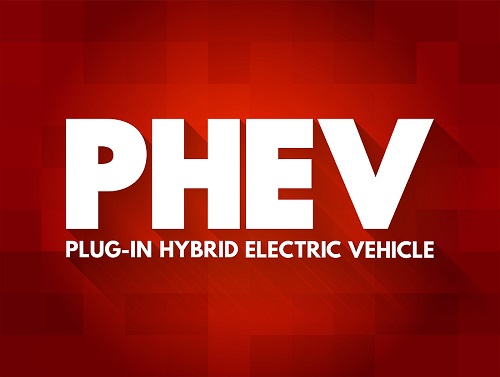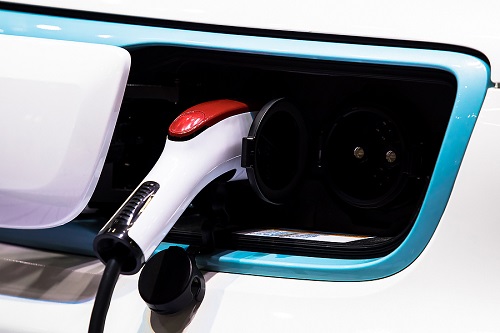Resale value is a key component of a car’s running costs. Indeed, given that an average car can shed 60 per cent of its original price in the first three years of ownership, resale value and depreciation dwarf the likes of fuel costs, taxation, and servicing when it comes to how much your new car is costing you.
Electric cars, it’s often thought, can buck that trend. There is huge demand for electric cars right now, and that is keeping second hand prices exceptionally buoyant. Indeed, a quick scan of the classified ads seems to show that some models — Tesla’s popular Model 3 saloon for example — can command as-new prices for a two or three-year old example.

So, when we ask do electric cars hold their value, the answer seems to be a rousing yes. They might even, in some exceptional circumstances, not depreciate at all over the normal three year first period of ownership.
However, we shouldn’t take this as being an indicator for the years to come. The Model 3 is surely something of an anomaly, not least because it was one of the few electric cars on sale three years ago which actually had a decent one-charge range. This, given the demand for second hand electric cars, means that the Model 3 is even more in demand, simply because of its functionality.
It’s not alone, however. A scan of Nissan Leaf classified adverts show that three-year old examples are also commanding second hand prices close to the cost of a new model. Once again, the laws of supply and demand are playing out here — the supply of new electric cars is currently heavily restricted, as the global shortage of computer chips is strangling production. Hence the extra demand in the second hand market, and therefore hence the buoyant second hand values. It doesn’t hurt that the Leaf is a practical family five-door, with a decent, if perhaps not exceptional, one-charge range. So if we look at the Leaf as an example, electric cars are definitely holding their value.
In a more normal market — to which we might expect things to return over the next couple of years as the computer chip crisis eases — it’s expected that electric cars will continue to depreciate more slowly than conventional petrol and diesel models. While the proposed ban on the sale of petrol and diesel cars in 2030 is only about new car sales — no-one is proposing stopping people driving existing combustion-engined cars — the fact that the ban exists, and the knowledge of restrictions on the use of combustion-engined cars in other countries (such as city-centre driving bans) is making many people think seriously about switching to all-electric power.
With that extra demand likely to play out for at least the next seven years, second hand values for electric cars are going to remain high, and it’s estimated that while a ‘normal’ car will lose 60 per cent of its value in the first three years, an electric car will likely lose only around 49 per cent, and sometimes less than that.

For all that, there are still barriers to electric car sales, and depending on how these barriers are resolved in the coming years, there may be some effects on electric car values. A recent survey by tolling provider EasyTrip showed that of Ireland’s car buyers, only 27 per cent said that they planned to buy an electric car in 2023. A far higher proportion — 39 per cent — said that they would go for a hybrid-engined car, and that seems borne out by sales figures. Given that the state of the charging network and the range of electric cars are second and third only to the price tag in the reasons given by Irish buyers for not going electric, it’s little wonder that hybrids remain a popular choice. They give people at least a little bit of electric motoring, and some savings on fuel bills, without the worries over not having enough charge to get home, or not being able to find a charging point when on a long journey.
One recent survey pegged the second hand value of a hybrid-engined car at 65 per cent of its original price after three years, out-performing many electric models.
In terms of making sure that you keep the value in your electric car, should you buy one, it’s the condition of the battery that will be crucial. Batteries age and degrade over time, not as much as we first feared they might, but there’s an inevitable toll of wear and tear. Keeping that wear and tear to a minimum — just as you would with a petrol or diesel car — will certainly help prop up the value of your electric car down the road. To keep a battery in good health, the best advice is to only charge to 80 per cent capacity when using a public DC rapid charging point, and only fully charge to 100 per cent from a ‘slow’ 7.4kW charger (such as a home charging point) when you really need to. Most electric cars will allow you to select a maximum level of battery charge on the touchscreen in the cabin, which helps. When it comes to selling your electric car, it’s worth having the battery’s health and maximum charging capacity checked out independently, so that you can advertise the good condition of the battery.

Beyond that, the landscape of what cars are worth second hand will change dramatically, albeit not instantly. We are moving towards an era of ‘circular manufacturing’ which is not simply about using recycled materials, it’s about up-cycling what we already have. Toyota and Renault both have plans to take second hand electric vehicles and refurbish them to more-or-less ‘as new’ standards for a second period of ownership, while BMW has plans to go even further than that. “I think in terms of people being able to afford new cars, I think we really need to also think about prolonging the life of cars, not having a used car market where you sell one car after each other, but maybe take a car and extend its lifespan” said Monika Dernai, BMW’s head of social sustainability. “So the idea could be that you freshen up the interior, and that you need and develop new skill sets in the aftermarket. You design your car so that for instance the seat can be easily removed and a new front seat can be moved in, and then it's a used car that looks like a new car. It can have the same owner who then doesn't buy a new car, but we still have a business model as BMW and the whole society.”